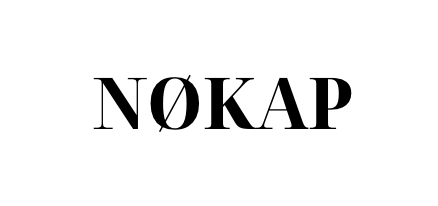My media ethics professor sent the class an email asking if it is possible for a good person to be wrong.
I think it is only right to ask the opposite as well. Is it possible for a bad person to be right? But that is not the point. The point is: what makes a person good and what makes one bad?
Does it depend on individual ethical systems? Can you only be deemed good or bad when judged within the context of someone’s moral environment?
I guess that’s why people like religion. It’s simple. It’s a set of standards that apply across cultures, environments, peoples, languages, and other categories.
I’ve always said that my ethics and definition of capital-T-Truth comes from God and having a personal relationship with Him. I don’t believe in “religion” because I think it’s man’s way of putting God in a box and making out of him what they want, according to their interpretations, and what they are comfortable with.
Anyway, my class talked a lot about how dangerous it is to operate with certainty. And the thing is, there are many ideas I hold of which I am certain of their Truth. I understand the danger of thinking so but, at the same time, I also think truths often need evidence or proof of their veracity.
When it comes to the things of God, I know He is real and the things He says are true because of my personal experiences with Him. I have had dreams and visions, experienced Him speaking to me in real life, and watched Him work in my life. I have even experienced healing in my own body and seen it in others in ways that left doctors surprised.
God is known by experience or not at all. It’s the same way you know your spouse, parents, or kids. You spend time with them and, after a while, you could pick out their voice in a crowd of 100 people.
Now, imagine how strongly I hold fast to these things. Then, imagine how difficult it is for me to hear others not believe these things or oppose the truths I believe are capital-T. Being aware of my thinking patterns helped me understand the inherent tension found in empathy. In his email to the class, my professor said,
“Empathy does not require that we forget ourselves while slipping into another person’s concerns. But can WE minimize harm while fighting for what we believe? Can we be right and still show compassion for the wrong?”
For some reason, those words affected me. Showing compassion while also fighting for what I believe has been a difficult balance for me to find. But not because of a lack of willingness to have compassion on my part. Instead, I am a very passionate person. When I believe something, I’ll stand for it no matter what. But in my passionate belief of what I hold to be true, I know that having compassion for others opposing that truth does not have to be mutually exclusive. And in fact, even the Bible talks about having compassion, love, and patience for others. It teaches that no person is more or less than another person. We all began in the same place, and we are all considered worthy of Jesus’ sacrifice.
I have to remind myself of this often. Especially during a global pandemic where there is a lot of debate, uncertainty, and pointing fingers.
I always say that I don’t like to debate because why would I waste energy and emotions trying to convince others of something when I know I’m right? But now, I’d call that very dangerous territory.
So, I have changed my perspective. It’s not about convincing anyone of anything. And it’s not about getting worked up over the fact that someone ardently opposes what you believe. It’s about listening. Showing others that you care about what they have to think and say. It’s about having a discussion. Being able to speak and think about things that are contradictory but existing at the same time.
I think that if we can do that, we will be able to find gaps in our certainties and adjust our thinking more and more toward the truth.
If we know why we do what we do and why we think how we think, maybe we can begin to understand why others think what they think as well– and have more compassion in doing so.

